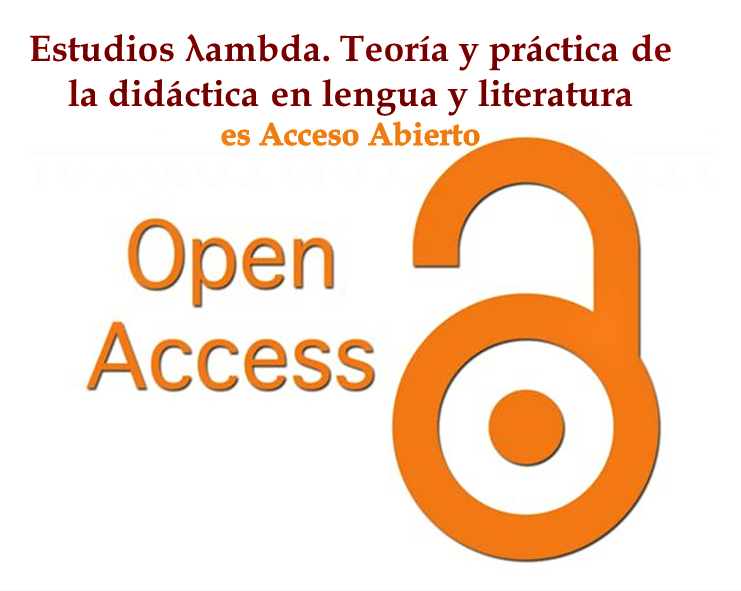Game of Thrones: Adapting the RTTP Model to the Teaching of Literature
Game of Thrones: Adapting the RTTP Model to the Teaching of Literature
DOI:
https://doi.org/10.36799/el.v1i1.28Keywords:
Reacting to the past, Role-playing game, didactic experiences, didactics of Medieval Spanish Literature, Game of Thrones.Abstract
RTTP (reacting to the past) is a role-play based learning model. This model or system has been successfully implemented in various North American universities. According to print and video testimonials, this method has proved to be very useful in helping students learn history and develop other capabilities through engagement with the main ideas and actions of the past. In this essay I present an adaptation of this model to the teaching of literature. During the month of October 2014, the model was applied to the study of Medieval Spanish Literature in a game dealing with Alfonso X and his ambitions of becoming Holy Roman Emperor. This text explains RTTP briefly and then proceeds to discuss some of the attributes of this model. It includes a description of our activity termed 'The deed of empire: game of thrones' with reflections on the results obtained. I also include proposals for further adaptation of this model in the teaching of literature.
Downloads
References
<https://es.wikipedia.org/w/index.php?title=Caballeros_Templarios_(c%C3%A1rtel)&oldid=85568004>.
Barnard College. “Instructor Resources”. Reacting to the Past. 17 de febrero 2015.
https://reacting.barnard.edu/curriculum/published-games.
Borges, Tomás “El Profe del Narco, líder de los Caballeros Templarios” Los Angeles Press. 2 de octubre de 2013. 5 de octubre de 2015. http://www.losangelespress.org/el-profe-del-narco-lider-de-los-caballeros-templarios/.
Breen, Benjamin. “Why 'Game of Thrones' Isn’t Medieval—and Why That Matters”. Pacific Standard. 12 de junio de 2014. Consultado 6 de octubre de 2015.
http://www.psmag.com/books-and-culture/game-thrones-isnt-medieval-matters-83288.
Cuddon, John. The Penguin Dictionary of Literary Terms and Literary Theory. New York: Penguin, 1998.
Curva del olvido. Wikipedia, La enciclopedia libre. 23 jun 2014, 02:45 UTC. 9 oct 2015, 15:50 <https://es.wikipedia.org/w/index.php?title=Curva_del_olvido&oldid=75185368>
Fay, Elizabeth A. Romantic Medievalism. History and the Romantic Literary Ideal. New York: Palgrave, 2002.
García Alcázar, Silvia. “El medievalismo decimonónico como base de la restauración monumental romántica en España” Actas del Séptimo Congreso Nacional de Historia de la Construcción. Santiago de Compostela. (2011): 459-468. Consultado 5 de octubre de 2015. http://www.sedhc.es/biblioteca/actas/CNHC_7%20%2847%29.pdf.
Gautier, Théophile. Mademoiselle de Maupin. Barelona: Random House Mondadori, 2010.
Gerrard, Christopher. Medieval Archaeology:Understanding Traditions and Contemporary Approaches. New York: Routledge, 2002.
Gómez Redondo, Fernando. Historia de la prosa medieval castellana I. La creación del discurso prosístico: el entramado cortesano. Madrid: Ediciones Cátedra, 1998.
Proctor, Nicolas W. Reacting to the Past Game Designer’s Handbook. 3ª Ed. Des Moines: Simpson College, 2013.
Martín Rogero, Nieves. “Ficción literaria y educación. Lo fantástico medieval en la narrativa juvenil”. Didáctica. Lengua y Literatura. 20 (2008): 191-209.
Selingo, Jeffrey J. College Unbound: The Future of Higher Education and What It Means for Students. New York: New Harvest, 2013. Kindle Edition.
Utz, Richard. “Don’t be Snobs, Medievalists”. The Chronicle of Higher Education. August 24, 2015. Consultado el 5 de octubre de 2015. http://chronicle.com/article/Dont-Be-Snobs-Medievalists/232539/.
Downloads
Published
How to Cite
Issue
Section
License
El autor o autores conservan en todo momento sus derechos morales y patrimoniales sobre la obra; la obra no se puede alterar, transformar o ampliar; siempre debe reconocerse la autoría del documento referido. Ninguna de las modalidades de los documentos publicados en Estudios λambda. Teoría y práctica de la didáctica en lengua y literatura tienen fines comerciales de naturaleza alguna.







